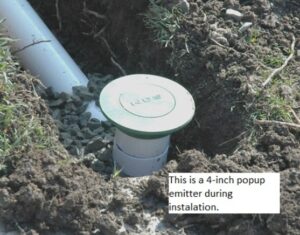When buying a home, the excitement of securing a property often leads to overlooking one important step: the home inspection. Whether you’re a first-time buyer or an experienced homeowner, hiring a home inspector Orange County NY to thoroughly evaluate the property is one of the best ways to avoid costly surprises. Knowing what to expect during a home inspection is crucial for getting the most out of the process.
This article outlines everything you should expect during your home inspection, including what a home inspector looks for, common areas of focus, and how the inspection can save you money in the long run.
Why Is a Home Inspection So Important?
A home inspection is a detailed assessment of a property’s condition. It provides valuable insights into the home’s overall health, highlighting both minor and major issues that could affect the safety, functionality, and value of the property. Think of it as a health check-up for your future home—ensuring that you’re not walking into a hidden disaster.
A good home inspector will examine everything from the roof to the foundation, and even the plumbing and electrical systems, to make sure the house is safe and sound. Without a proper home inspection, you risk missing critical issues that may lead to costly repairs or even safety hazards later.
What to Expect During a Home Inspection: A Step-by-Step Guide
A home inspection typically lasts between two to four hours, depending on the size of the property. During this time, the home inspector will assess several key areas of the home. Here’s a breakdown of the most common things you can expect to be inspected:
1. Exterior and Structural Integrity
The first thing a home inspector will typically do is assess the exterior of the property. This includes the condition of the home’s structure, foundation, and other external elements that could affect the safety and stability of the property.
What to expect:
• Foundation and walls: Look for cracks or unevenness, which may indicate shifting or settling.
• Roof and gutters: The home inspector will check for missing or damaged shingles, leaks, and the overall condition of the roof and gutters.
• Windows and doors: Ensure that all windows and doors are secure, functional, and properly sealed.
A thorough inspection of the exterior will help you identify structural issues that could lead to costly repairs down the road.
2. Roof and Attic Inspection
While often out of sight, the roof and attic play a crucial role in protecting your home from the elements. The home inspector will examine both to ensure they are in good condition.
What to expect:
• Roof inspection: The home inspector will look for damaged shingles, leaks, or other wear-and-tear that could lead to water damage or energy inefficiency.
• Attic inspection: Proper insulation, ventilation, and structural integrity will be checked. The inspector will also look for signs of mold or pests in the attic.
These inspections are critical because roof issues can lead to significant, expensive damage if not addressed early.
3. Plumbing System Evaluation
A home inspection wouldn’t be complete without a thorough evaluation of the home’s plumbing. The home inspector will assess both the visible and accessible plumbing systems to ensure they are functioning correctly and up to code.
What to expect:
• Water pressure: The home inspector will check the water pressure throughout the house to ensure it is consistent and sufficient.
• Pipes: Look for any leaks, corrosion, or signs of wear in the pipes, particularly in areas like under sinks and around the water heater.
• Water heater: Expect the inspector to check the age, condition, and safety features of the water heater.
Plumbing issues can cause water damage and expensive repairs if not addressed. A home inspection ensures you know what you’re dealing with.
4. Electrical System Review
Your home’s electrical system is one of the most important systems to have inspected, as electrical failures can lead to serious hazards, including fires.
What to expect:
• Wiring: The home inspector will check for exposed, frayed, or outdated wiring, which could pose safety risks.
• Electrical panel: The inspector will inspect the circuit breaker panel to ensure it is properly labeled and up to code.
• Outlets and switches: Expect a check to ensure that all outlets and switches are functioning properly and safely.
An inspection of the electrical system will help ensure your home is up to current safety standards.
5. Heating and Cooling Systems
The HVAC system is essential for comfort in your home. A home inspector will assess the heating and cooling systems to make sure they’re working efficiently and safely.
What to expect:
• Furnace or boiler: The inspector will check for signs of rust, leaks, or age-related wear that might indicate it needs replacement.
• Air conditioning: The home inspector will check the A/C unit for efficiency and condition, ensuring it can cool the home effectively.
• Ductwork: The condition of the ductwork will be assessed for air leaks or blockages.
A properly functioning HVAC system can save you money on energy bills, so it’s crucial to ensure these systems are in good shape.
6. Interior Condition and Safety
Once the major systems are inspected, the home inspector will turn their attention to the interior of the home. This includes checking for any safety concerns, such as mold, pest infestations, or structural problems.
What to expect:
• Walls and ceilings: The inspector will check for cracks, water damage, or signs of settling.
• Floors and foundation: Ensure that the floors are level and free of significant damage.
• Safety features: Smoke detectors, carbon monoxide detectors, and the overall safety of stairs and railings will be checked.
These aspects of the home inspection are essential for making sure the home is livable and safe for you and your family.
7. Final Report: What Will It Include?
After the inspection, the home inspector will provide a detailed report that includes:
• A list of all findings, including any issues or concerns.
• Recommendations for repairs or further evaluations if necessary.
• Photos and explanations for the issues found.
The report helps you understand the condition of the home and provides a baseline for any negotiations or repairs needed.
Conclusion
A home inspection is a vital step in the home-buying process. It provides you with an in-depth understanding of a property’s condition, from the roof to the foundation, and everything in between. By hiring a qualified home inspector, you can uncover hidden issues that could cost you significantly down the road. Knowing what to expect during the inspection will help you be more prepared and ensure you make an informed decision.
Whether you’re a first-time homebuyer or a seasoned property owner, a thorough home inspection ensures that you’re not walking into a money pit. It provides peace of mind and a clear picture of the property’s value. So, before you make any final decisions, don’t skip the crucial step of a home inspection Fishkill NY—it’s an investment in your future home.




More Stories
Louis Vuitton Wall Art: The Ultimate Statement in Luxury Interior Decor
How to Choose the Right Wedding Photographer in Denver Without Stress
What to Know Before Hiring a Gutter Company in Gainesville FL: A Friendly Guide